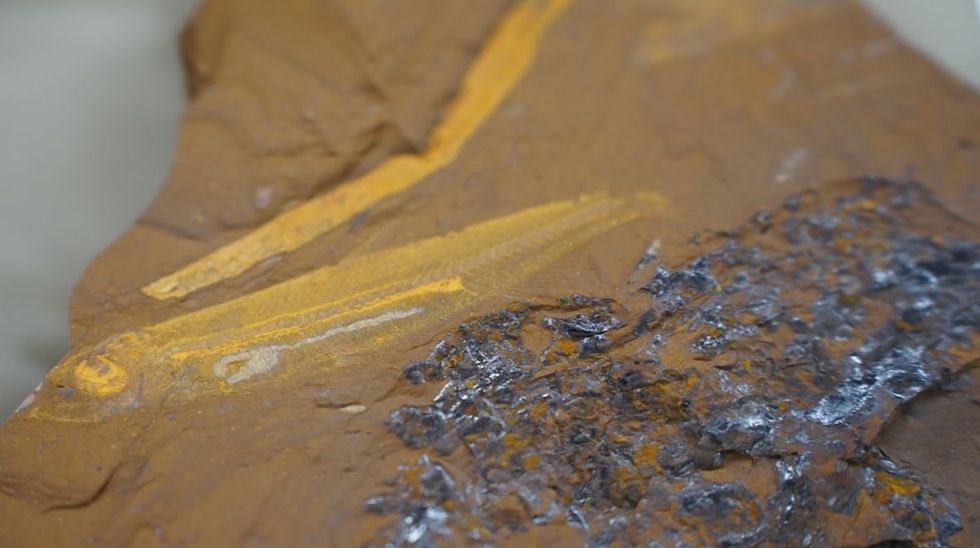Oldest example of well-preserved vertebrate brain found in ancient fossilised fish
PA, University of Michigan
Scientists in Australia have uncovered some ancient secrets thanks to the discovery of a 15-million-year-old fossilised freshwater fish.
The rare, first-of-its-kind fossil discovery was made by a team from the Australian National Museum and UNSW Sydney, led by Dr. Matthew McCurry.
It was found at McGraths Flat, a fossil site in New South Wales, which is designated as a Lagerstätte. This means it contains fossils that have an exceptionally high level of detail.
The fossil of the newly-discovered freshwater fish species preserved its stomach contents and its colour patterns.
The new species has been named Ferruaspisbrocksi and honours Professor Jochen Brocks from the Australian National University, who helped discover fossils at the site.
According to McCurry, the fossils were formed 11 and 16 million years ago and reveal that the area was once a temperate rainforest, which was lush and full of life.

“Ferruaspisbrocksi is the first fossil freshwater Australian Smelt to be found in Australia,” Dr McCurry explained.
“The discovery of the 15 million-year-old freshwater fish fossil offers us an unprecedented opportunity to understand Australia’s ancient ecosystems and the evolution of its fish species.
“This fossil is part of the Osmeriforms fish family – a diverse group of fish species within Australia that includes species like the Australian Grayling and the Australian Smelt. But, without fossils it has been hard for us to tell exactly when the group arrived in Australia and whether they changed at all through time.”
Through the stomach contents, the team were able to determine it fed on a variety of invertebrates, though its main prey was a kind of small midge larva. The experts also discovered a parasite on the tail of one of the fossilised fish.
The species’ namesake, Professor Brocks, said: “I am very proud to have this world-first discovery named after me and I thank my colleagues at the Australian Museum and the University of Canberra for bestowing this upon me.
“This discovery opens new avenues for understanding the evolutionary history of Australia’s freshwater fish species and ancient ecosystems.”
Why not read…
Huge fossilised claws discovered by scientists belong to mysterious new species
Ancient mammals all had the same colour fur for this unlikely reason
Builders dig beneath high school and discover megalodon shark
How to join the indy100's free WhatsApp channel
Sign up to our free indy100 weekly newsletter
Have your say in our news democracy. Click the upvote icon at the top of the page to help raise this article through the indy100 rankings
Top 100
The Conversation (0)














